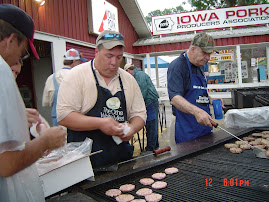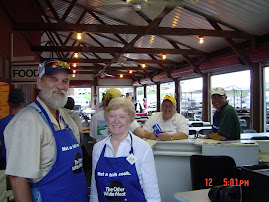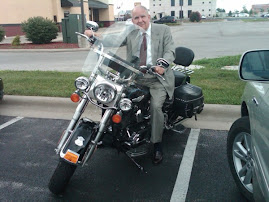JOIN WITH ME IN STANDING ROCK SOLID BEHIND THOSE TRADITIONAL AND CONSTITUTIONAL VALUES THAT HAVE MADE AMERICA THE GREATEST NATION ON EARTH WATCH PART 1 AND PART 2 BELOW, DOUBLE CLICK ON BOTH
LISTEN
WWW
A REAFFIRMATION OF AMERICAN GREATNESS
U.S.Politics
Dr. Phillips Grilling

Iowa State Fair Pork Tent Pork Producers Assn
Mary Beth Phillips at Pork Tent

Iowa State Fair Pork Producers Assn
Dr. Phillips on Police Harley

Bandana Barbeque Springfield Missouri
A Great Farm Family, The John Preussner of Iowa

John, Julie, Ellie, Will and Luke
Thursday, November 21, 2013
ARTICLE ROLLING STONE NOVEMBER 20, 2013
Rolling Stone, November 20, 2013
John F. Kennedy's Vision of Peace
On the 50th anniversary of JFK's death, his nephew recalls the fallen president's attempts to halt the war machine
President John F. Kennedy at work in the Oval office in 1962.
George Tames/The New York Times
By Robert F. Kennedy Jr.
November 20, 2013 12:30 PM ET
On November 22nd, 1963, my uncle, president John F. Kennedy, went to Dallas intending to condemn as "nonsense" the right-wing notion that "peace is a sign of weakness." He meant to argue that the best way to demonstrate American strength was not by using destructive weapons and threats but by being a nation that "practices what it preaches about equal rights and social justice," striving toward peace instead of "aggressive ambitions." Despite the Cold War rhetoric of his campaign, JFK's greatest ambition as president was to break the militaristic ideology that has dominated our country since World War II. He told his close friend Ben Bradlee that he wanted the epitaph "He kept the peace," and said to another friend, William Walton, "I am almost a 'peace at any price' president." Hugh Sidey, a journalist and friend, wrote that the governing aspect of JFK's leadership was "a total revulsion" of war. Nevertheless, as James W. Douglass argues in his book JFK and the Unspeakable: Why He Died and Why It Matters, JFK's presidency would be a continuous struggle with his own military and intelligence agencies, which engaged in incessant schemes to trap him into escalating the Cold War into a hot one. His first major confrontation with the Pentagon, the Bay of Pigs catastrophe, came only three months into his presidency and would set the course for the next 1,000 days.
JFK's predecessor, Dwight D. Eisenhower, had finalized support on March 17th, 1960, for a Cuban invasion by anti-Castro insurgents, but the wily general left its execution to the incoming Kennedy team. From the start, JFK recoiled at the caper's stench, as CIA Director Allen Dulles has acknowledged, demanding assurances from CIA and Pentagon brass that there was no chance of failure and that there would be no need for U.S. military involvement. Dulles and the generals knowingly lied and gave him those guarantees.
When the invasion failed, JFK refused to order airstrikes against Castro. Realizing he had been drawn into a trap, he told his top aides, David Powers and Kenneth O'Donnell, "They were sure I'd give in to them and send the go-ahead order to the [U.S. Navy aircraft carrier] Essex. They couldn't believe that a new president like me wouldn't panic and try to save his own face. Well, they had me figured all wrong." JFK was realizing that the CIA posed a monumental threat to American democracy. As the brigade faltered, he told Arthur Schlesinger that he wanted to "splinter the CIA into a thousand pieces and scatter it to the winds."
The next confrontation with the defense and intelligence establishments had already begun as JFK resisted pressure from Eisenhower, the Joint Chiefs and the CIA to prop up the CIA's puppet government in Laos against the communist Pathet Lao guerrillas. The military wanted 140,000 ground troops, with some officials advocating for nuclear weapons. "If it hadn't been for Cuba," JFK told Schlesinger, "we might be about to intervene in Laos. I might have taken this advice seriously." JFK instead signed a neutrality agreement the following year and was joined by 13 nations, including the Soviet Union.
His own instincts against intervening with American combat forces in Laos were fortified that April by the judgment of retired Gen. Douglas MacArthur, America's undisputed authority on fighting wars in Asia. Referring to Dulles' mischief in Southeast Asia during the Eisenhower years, MacArthur told JFK, "The chickens are coming home to roost, and [you] live in the chicken coop." MacArthur added a warning that ought to still resonate today: "Anyone wanting to commit American ground forces to the mainland of Asia should have his head examined."
About six months into his administration, JFK went to Vienna to meet Soviet Premier Nikita Khrushchev with high hopes of beginning a process of détente and mutual nuclear disarmament. Khrushchev met his proposals with bombast and truculent indifference. The Joint Chiefs and the CIA, which had fulminated about JFK's notion of negotiating with the Soviets, were relieved by the summit's failure. Six weeks later, military and intelligence leaders responded by unveiling their proposal for a pre-emptive thermonuclear attack on the Soviet Union, to be launched sometime in late 1963. JFK stormed away from the meeting in disgust, remarking scathingly to Secretary of State Dean Rusk, "And we call ourselves the human race."
As JFK's relationship with his military-intelligence apparatus deteriorated, a remarkable relationship with Khrushchev began. Both were battle-hardened war veterans seeking a path to rapprochement and disarmament, encircled by militarists clamoring for war. In Kennedy's case, both the Pentagon and the CIA believed war with the Soviets was inevitable and therefore desirable in the short term while we still had the nuclear advantage. In the autumn of 1961, as retired Gen. Lucius Clay, who had taken a civilian post in Berlin, launched a series of unauthorized provocations against the Soviets, Khrushchev began an extraordinary secret correspondence with JFK. With the Berlin crisis moving toward nuclear Armageddon, Khrushchev turned to KGB agent Georgi Bolshakov, a top Soviet spy in Washington, to communicate directly with JFK. Bolshakov, to the horror of the U.S. State Department, was a friend of my parents and a frequent guest at our home. Bolshakov smuggled a letter, the first of 21 declassified in 1993, to JFK's press secretary, Pierre Salinger, in a folded newspaper. In it, Khrushchev expressed regret about Vienna and embraced JFK's proposal for a path to peace and disarmament.
On October 27th, Gen. Clay made an unauthorized armed threat to knock down the Berlin Wall using tanks equipped with dozer plows, seeking to provoke the Soviets into some action that would justify a nuclear first strike. The Kremlin responded with its own tanks, which met Clay's forces at the border crossing known as Checkpoint Charlie. A 16-hour face-off ensued. Through my father, Attorney General Robert F. Kennedy, and Bolshakov, JFK promised that if Khrushchev withdrew his tanks within 24 hours, the U.S. would pull back 20 minutes later. Khrushchev took the risk, and JFK kept his word. Two weeks later, with tensions still running, Khrushchev sent a second letter to JFK: "I have no ground to retreat further, there is a precipice behind [me]." Kennedy realized that Khrushchev, too, was surrounded by a powerful military and intelligence complex intent on going to war. After the confrontation, Gen. Clay railed against JFK's unwillingness to "face the risk of nuclear war" against the Soviets.
One year later, on October 16th, 1962, Kennedy saw aerial photographs proving that the Soviets had installed nuclear missiles in Cuba capable of reaching much of the eastern U.S. seaboard. The next 13 days were the most perilous in mankind's history. From the outset, the Pentagon, the CIA and many of JFK's advisers urged airstrikes and a U.S. invasion of the island that, as a Soviet military commander later revealed, would have triggered a nuclear war with the Soviets. JFK opted for a blockade, which Soviet ships respected. By October 26th, the standoff was de-escalating. Then, on October 27th, the crisis reignited when Soviet forces shot down a U.S. reconnaissance plane, killing its pilot, Maj. Rudolf Anderson. Almost immediately, the brass demanded overwhelming retaliation to destroy the Soviet missile sites. Meanwhile, Castro pushed the Kremlin military machine toward a devastating first strike. In a secret meeting with Ambassador Anatoly Dobrynin, my father told him, "If the situation continues much longer, the president is not sure that the military will not overthrow him and seize power." U.S. marshals appeared at our house to take us to government bunkers in western Virginia. My brother Joe and I were anxious to go, if only to see the setup. But my father, who'd spent the previous six nights at the White House, called to say that we needed to be "good soldiers" and show up for school in Washington. To disappear, he told us, would cause public panic. That night, many people in our government went to sleep wondering if they would wake up dead.
On Monday, October 29th, the world moved back from the brink. An artfully drafted letter my father wrote with Ted Sorensen pledging that the U.S. would not invade Cuba – plus JFK's secret agreement with Khrushchev to withdraw obsolete Jupiter missiles from Turkey – persuaded the Kremlin to back down.
Read more: http://www.rollingstone.com/politics/news/john-f-kennedys-vision-of-peace-20131120#ixzz2lJas7fwz
Follow us: @rollingstone on Twitter |
alan Phillips
THE EIGHTH PROPOSITION, DO NOT VIOLATE MUTUAL TRUST WITH ALLIES, JOHN F. KENNEDY, SPEECH AT NATO HEADQUARTERS, NAPLES, JULY 2, 1962
Today’s Europe along with some othernations of the world seem to view the United States as a malicious digital
invader and recorder of their confidential national data, voice, andtransmission of privileged or confidential information. America though the secret efforts of agencies lacking apparent detailed Congressional oversight
including the D.I.A., N.S.A., C.I.A, and other entities have captured without various nation’s permission myriads of conversation from international leaders. Most violated countries have demanded from America detailed explanations as to government motivation for this continuing violation of mutual trust.
When the late President Kennedy addressed various international officials and the leadership of N.A.T.O. he enunciated eight principles that he had observed that gave the alliance great strength and promise for the future. Yet, it is his eighth observation that provides guidance and direction to our nation during this time of international mistrust and valid suspicion.
“Eighth, and finally, it is increasingly clear--and increasingly understood--that the central moving force of our great adventure is enduring mutual trust. I came to Europe to reassert--as clearly and persuasively as I could--that the American commitment to the freedom of Europe is reliable-not merely because of good will, though that is strong--not merely because of a shared heritage, though that is deep and wide--and not at all because we seek to dominate; we do not. I came to make
it clear that this commitment rests upon the inescapable requirements of
intelligent self-interest--it is a commitment whose wisdom is confirmed both by
its absence when two great wars began and by its presence in 18 years of
well-defended peace. The response which this message has evoked--from
European citizens, from the press, and from leaders of the continent--makes it
increasingly clear that our commitment--and its durability-are understood. And
at the same time, all that I have seen and heard in these 10 crowded days
confirms me in the conviction-which I am proud to proclaim to my own
countrymen--that the freemen and free governments of free Europe are also firm
in their commitment to our common cause. We have been able to trust each
other now for nearly 20 years. And we are right to go on.
One hundred and fifteen years ago this month, Giuseppe Mazzini addressed a mass meeting in Milan with these words:
We are here ... to build up the unity of the human family, so that the day may come when it shall represent a single sheepfold with a single shepherd--the spirit of God.... Beyond the Alps, beyond the sea, are other peoples now ... striving by different routes to reach the same goal--improvement, association and the foundations of an authority that shall put an end to world anarchy.... United with them-they will unite with you.
Today, Italy is united as a free nation and committed to unity abroad. And beyond the Alps in the capitals of Western Europe, beyond the sea in the capitals of North America, other nations and other peoples are also striving for new association and improvement. By building Western unity strengthening the ties of solidarity that can deter further wars in the future. In time, therefore, the unity of the West can lead to the unity of East and West, until the human family is truly a ‘single
sheepfold’ under God.”
The absolute primacy of enduring mutual trust was the nexus of America’s relationship with European nations. This level of trust sought permission prior to institutional snooping and unauthorized data and information collection. At a minimum restoration of confidence with our allies to a position of mutual trust could take years.
Agencies must have strong accountability and Congressional oversight it we are
even in our homes to avoid an Orwellian ethos that uses spare time to collect
innocent telephonic transmissions, mail and emails. We must heed the words of President Kennedy or sit idly as we watch our constitutional freedoms erode.
Dr. Alan G. Phillips, Sr.